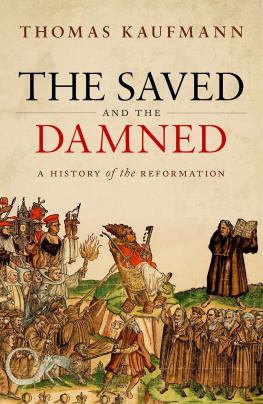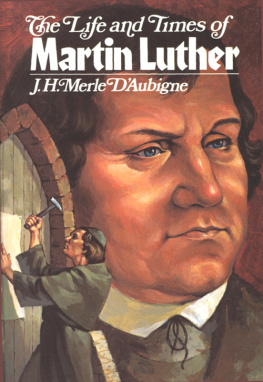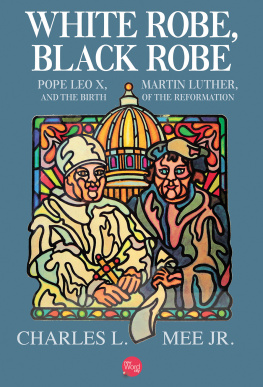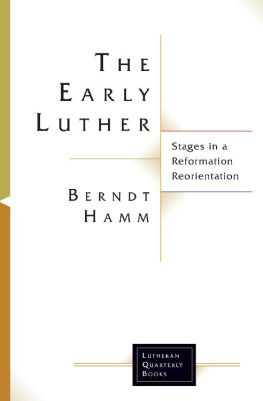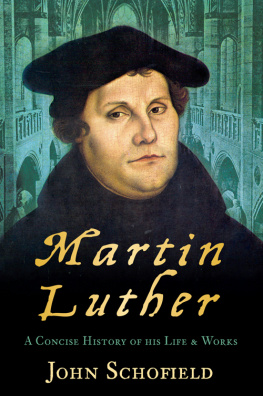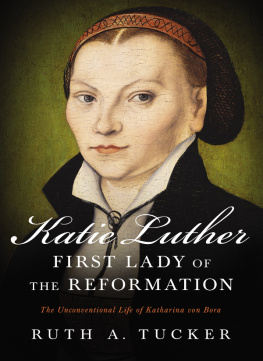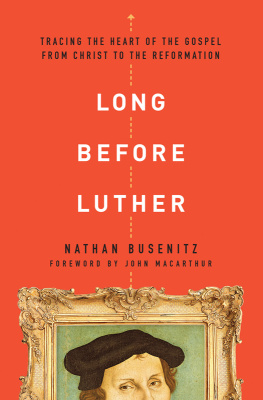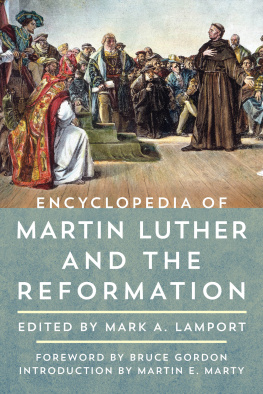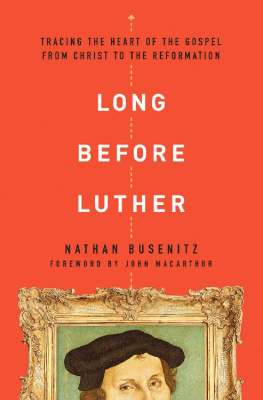PREFACE.
Table of Contents
The first part of this book presents the studies of the Author in preparing a Memorial Oration delivered in the city of New York, November 10, 1883, on the four hundredth anniversary of the birth of Martin Luther. The second part presents his studies in a like preparation for certain Discourses delivered in the city of Philadelphia at the Bi-Centennial of the founding of the Commonwealth of Pennsylvania. There was no intention, in either case, to make a book, however small in size. But the utterances given on these occasions having been solicited for publication in permanent shape for common use, and the two parts being intimately related in the exhibition of the most vital springs of our religious and civil freedom, it has been concluded to print these studies entire and together in this form, in hope that the same may satisfy all such desires and serve to promote truth and righteousness.
Throughout the wide earth there has been an unexampled stir with regard to the life and work of the great Reformer, and these presentations may help to show it no wild craze, but a just and rational recognition of God's wondrous providence in the constitution of our modern world.
And to Him who was, and who is, and who is to come, the God of all history and grace, be the praise, the honor, and the glory, world without end!
Thanksgiving Day, 1883.
LUTHER AND THE REFORMATION.
Table of Contents
A rare spectacle has been spreading itself before the face of heaven during these last months.
Millions of people, of many nations and languages, on both sides of the ocean, simultaneously engaged in celebrating the birth of a mere man, four hundred years after he was born, is an unwonted scene in our world.
Unprompted by any voice of authority, unconstrained by any command of power, we join in the wide-ranging demonstration.
In the happy freedom which has come to us among the fruits of that man's labors we bring our humble chaplet to grace the memory of one whose worth and services there is scarce capacity to tell.
Human Greatness.
Some men are colossal. Their characters are so massive, and their position in history is so towering, that other men can hardly get high enough to take their measure. An overruling Providence so endows and places them that they affect the world, turn its course into new channels, impart to it a new spirit, and leave their impress on all the ages after them. Even humble individuals, without titles, crowns, or physical armaments, have wrought themselves into the very life of the race and built their memorials in the characteristics of epochs.
History tells of a certain Saul of Tarsus, a lone and friendless man, stripped of all earthly possessions, forced into battle with a universe of enthroned superstition, encompassed by perils which threatened every hour to dissolve him, who, pressing his way over mountains of difficulty and through seas of suffering, and dying a martyr to his cause, gave to Europe a living God and to the nations another and an everlasting King.
We likewise read of a certain Christopher Columbus, brooding in lowly retirement upon the structure of the physical universe, ridiculed, frowned on by the learned, repulsed by court after court, yet launching out into the unknown seas to find an undiscovered hemisphere, and opening the way for persecuted Liberty to cradle the grand empire of popular rule amid the golden hills of a new and independent continent.
And in this category stands the name of Martin Luther .
He was a poor, plain man, only a doctor of divinity, without place except as a teacher in a university, without power or authority except in the convictions and qualities of his own soul, and with no implements save his Bible, tongue, and pen; but with him the ages divided and human history took a new departure.
Two pre-eminent revolutions have passed over Europe since the beginning of the Christian era. The one struck the Rome and rule of emperors; the other struck the Rome and rule of popes. The one brought the Dark Ages; the other ended them. The one overwhelmed the dominion of the Csars; the other humiliated a more than imperial dominion reared in Csar's place. Alaric, Rhadagaisus, Genseric, and Attila were the chief instruments and embodiment of the first; Martin Luther was the chief instrument and embodiment of the second. The one wrought bloody desolation; the other brought blessed renovation, under which humanity has bloomed its happiest and its best.
The Papacy.
Since Phocas decreed the bishop of Rome the supreme head of the Church on earth there had grown up strange power which claimed to decide beyond appeal respecting everybody and everythingfrom affairs of empire to the burial of the dead, from the thoughts of men here to the estate of their souls hereafterand to command the anathemas of God upon any who dared to question its authority. It held itself divinely ordained to give crowns and to take them away. Kings and potentates were its vassals, and nations had to defer to it and serve it, on pain of interdicts which smote whole realms with gloom and desolation, prostrated all the industries of life, locked up the very graveyards against decent sepulture, and consigned peoples and generations to an irresistible damnation. It was omnipresent and omnipotent in civilized Europe. Its clergy and orders swarmed in every place, all sworn to guard it at every point on peril of their souls, and themselves held sacred in person and retreat from all reach of law for any crime save lack of fealty to the great autocracy. The money, the armies, the lands, the legislatures, the judges, the executives, the police, the schools, with the whole ecclesiastical administration, reaching even to the most private affairs of life, were under its control. And at its centre sat its absolute dictator, unanswerable and supreme, the alleged Vicar of God on earth, for whom to err was deemed impossible.
Think of a power which could force King Henry IV., the heir of a long line of emperors, to strip himself of every mark of his station, put on the linen dress of a penitent, walk barefooted through the winter's snow to the pope's castle at Canossa, and there to wait three days at its gates, unbefriended, unfed, and half perishing with cold and hunger, till all but the alleged Vicar of Jesus Christ were moved with pity for his miseries as he stood imploring the tardy clemency of Hildebrand, which was almost as humiliating in its bestowal as in its reservation.
Think of a power which could force the English king, Henry II., to walk three miles of a flinty road, with bare and bleeding feet, to Canterbury, to be flogged from one end of the church to the other by the beastly monks, and then forced to spend the whole night in supplications to the spirit of an obstinate, perjured, and defiant archbishop, whom four of his over-zealous knights, without his orders, had murdered, and whose inner garments, when he was stripped to receive his shroud, were found alive with vermin!
Think of a power which, in defiance of the sealed safe-conduct of the empire, could seize John Huss, one of the worthiest and most learned men of his time, and burn him alive in the presence of the emperor!




